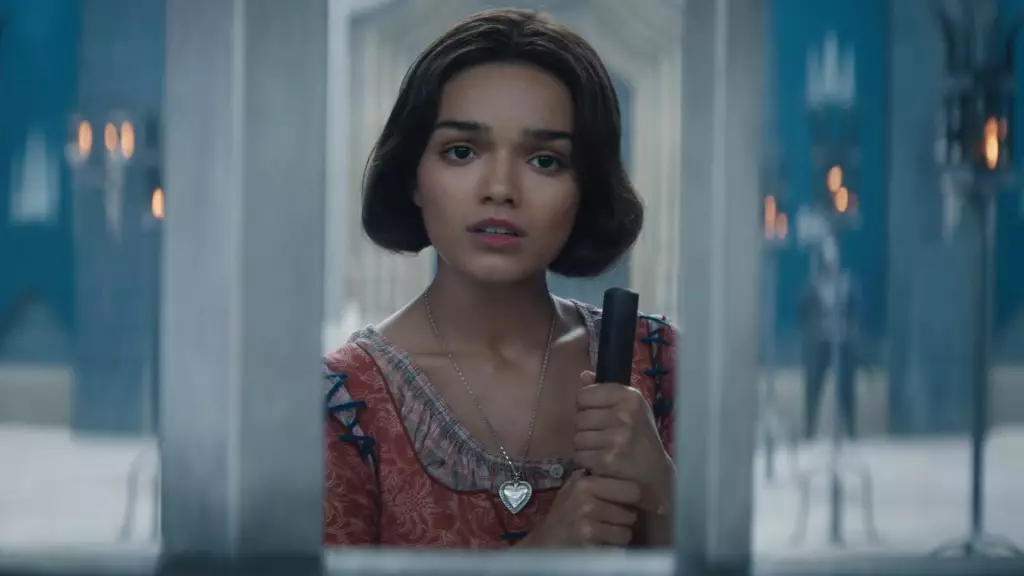Disney’s decision to revive its timeless classic *Snow White* with live-action splendor was both bold and fraught with peril. Armed with a talented cast led by Rachel Zegler and Gal Gadot, the film arrived with high expectations, aiming to capture the hearts of both nostalgic viewers and a new generation. Unfortunately, early reports suggest that this venture is on track to register an estimated loss of $115 million after accounting for all revenue streams. With a global box office take of merely $225 million, Disney undoubtedly faces questions regarding its creative directions in an ever-changing cinematic landscape.
The world is witnessing a significant transformation in the way audiences consume content. Disney’s once-unassailable box office draw has come under scrutiny, especially when figures such as the $100 million domestic box office—underwhelming compared to previous tales like *Dumbo*—are considered. While the magic of Disney often hinges on nostalgia, this film’s earnings indicate a broader fatigue with live-action remakes that fail to strike a chord.
The Financial Breakdown of a Missed Opportunity
The financial poring over *Snow White* yields a heartbreaking realization. With revenues projected at $295 million—factoring in not just box office streams but also home entertainment, streaming services, and even merchandise—the supposed financial success feels hollow in comparison to its production costs. With a staggering budget reported at $410 million, including a net production cost of $270 million that was exacerbated by disruptions such as labor strikes and set accidents, the film’s financial viability looks increasingly precarious.
The box office performance, particularly its steep 66% decline after its debut weekend, reflects an underlying malaise in Disney’s approach. Historical trends suggest that films reminiscent of classic animation face an uphill battle, especially if they rely predominantly on nostalgia rather than offering something fresh and innovative. The downward trajectory that *Snow White* has encountered might serve as a cautionary tale for future adaptations and remakes.
The Role of Controversy in Disney’s Narrative
One cannot ignore the evident implications of controversy in this narrative. Disney has experienced its share of public relations storms before; the challenges surrounding *Solo: A Star Wars Story* serve as a valuable comparison. Rather than boosting interest, particularly with protagonist Rachel Zegler’s outspoken criticisms—both of the material itself and the backlash against her casting—these controversies seemed to have fueled negativity around *Snow White*’s release.
The ancient adage “There’s no such thing as bad publicity” seems to falter when applied to modern filmmaking. With audiences increasingly polarized, it is essential that studios consider the potential fallout from public figures associated with their projects. Zegler’s engagement with detractors on social media has raised eyebrows, especially when it detracts from the film’s artistic merit. This may lead to a broader conversation about the responsibilities of celebrities in shaping narratives surrounding their work.
Rethinking Audience Engagement
In light of *Snow White*’s disappointing performance, one essential question emerges: how can Disney salvage this and similar projects in the future? The answer may lie in fostering a more proactive approach to audience engagement. Early screenings for social media influencers may have produced positive word-of-mouth buzz that could have softened the blow of any negative commentary. The digital age demands that filmmakers not only create compelling narratives but intertwine those with relatable outreach.
Moreover, Disney finds itself at a crossroads, evaluating the efficacy of its streaming strategies with platforms like Disney+. Once *Snow White* migrates to the streaming service, it could breathe new life into the film. The unpredictability of streaming viewership presents enticing possibilities; however, it’s a gamble that Disney should not rely on as a primary salvation strategy.
In a landscape where brand loyalty increasingly shapes revenue outcomes, Disney must foster fresh narratives that resonate with audiences without relying solely on past successes. What remains clear is that continuing to embrace innovation and responding effectively to audience expectations could determine the studio’s future trajectory in a complex filmmaking ecosystem.

Leave a Reply